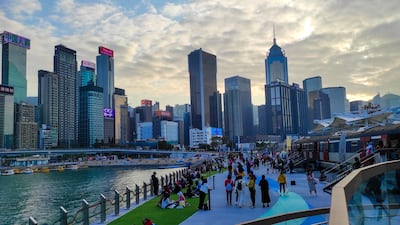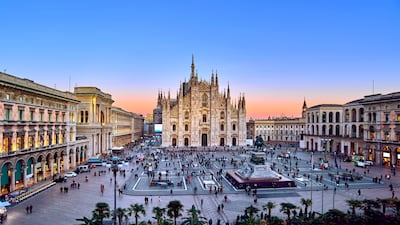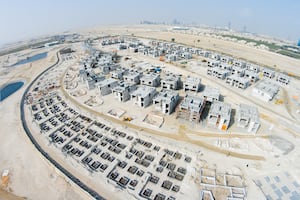Dubai has climbed five places to rank as the seventh most-expensive city in the world for the ultra-wealthy this year, driven by a strong rise in property prices, according to a new report.
The city is also the fourth most costly in the Europe, Middle East and Africa region for the affluent to lead a luxury lifestyle, the study by Swiss private bank Julius Baer revealed.
The emirate is now a “firm challenger” to the “traditional bastions of wealth” in the EMEA such as London, Monaco and Zurich, despite only a marginal 1 per cent increase in average local currency prices, the Julius Baer Global Wealth and Lifestyle Report 2025 said.
The index looked at a basket of 20 goods and services that affluent consumers buy and use ranging from property, watches and jewellery to lawyers and MBAs.
While prices of most of those have remained stable in the last year in Dubai, there has been a strong rise in big ticket items, such as cars (up 13 per cent) and residential property (up 17 per cent), which have affected the overall cost of living for wealthy people, the research showed.
“The prime property market has been growing rapidly, as affluent individuals are drawn by the high-quality residences on offer – a trend that has seen cities like London facing stiffer competition,” the report said.
“The fact that buyers get more than twice the square footage for their money compared to London has not gone unnoticed.”
Last year, Dubai’s real estate market saw “exceptional growth”, with property sales values rising 27 per cent year-on-year, it added.
The number of millionaires living in Dubai has doubled in the past decade, making it one of the world’s fastest-growing wealth hubs, an April report by New World Wealth for investment migration advisory company Henley & Partners showed.
Dubai now has 81,200 millionaires, 237 centimillionaires (whose wealth is in the hundreds of millions) and 20 billionaires. The previous year, there were 72,500 millionaires, 212 centimillionaires and 15 billionaires, the data showed.
In the past decade, there has been a 102 per cent increase in the number of millionaires in Dubai.
Singapore retained its position as the most expensive city for HNWIs globally this year, followed by London, which moved into second place. Hong Kong, Monaco and Zurich round out the top five spots. Shanghai ranked sixth and Dubai was in seventh place. New York, Paris and Milan filled the remaining spots in Julius Baer’s list of top 10 most expensive cities for the ultra-wealthy.
The momentum of millionaires relocating to Dubai, that began during the pandemic, is predicted to continue. The net inflow is destined to pass that of all other countries, according to Julius Baer.
“On its current upwards trajectory, it may not be a surprise to see Dubai vying for a spot on the podium in coming years. Though the cost of living well in the emirate may be swelling, along with the number of HNW residents, its attractiveness appears to remain undimmed,” the Swiss bank said.
In the Middle East, there was a high appetite for both experiential and material goods among wealthy residents. The region’s HNWIs focused on hotels, designer men’s clothing, fine dining, smartphones and high-end women’s handbags, the report revealed.
Globally, the prices of the basket of goods and services declined by 2 per cent globally, pointing to reduced luxury consumption. While the price of services fell modestly by 0.2 per cent, cost of goods declined by 3.4 per cent on average.
A key driver was a fall in technology prices across all regions. In contrast, prices of business class flights, watches and school fees have risen sharply, the report found.
Watch: Dubai's millionaires double as London drops down wealth list
It also found “profound shifts” in the attitudes and behaviours of HNWIs worldwide. Amid growing geopolitical tension and economic uncertainty, affluent people are increasingly balancing the desire to enjoy life today with long-term planning for the future.
“Financial longevity has become a critical concern, with the majority of respondents indicating they would adjust their wealth strategies if faced with longer life expectancies,” Julius Baer said.
“HNWIs in Asia-Pacific, the Middle East and Latin America continue to embrace higher risk levels and diversify portfolios in line with personal values and emerging global trends. In the Middle East, real estate (18 per cent) and equities (13 per cent) emerged as the preferred asset classes for HNWIs in the last year.”













